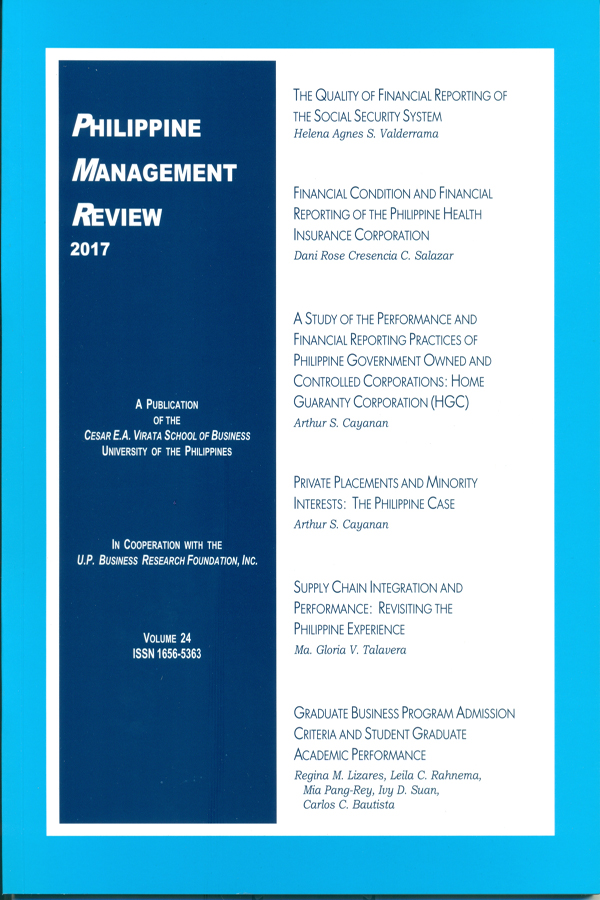Supply Chain Integration and Performance: Revisiting the Philippine Experience
Abstract
This paper seeks to identify the supply chain integration strategies adopted by selected Philippine firms, the measures used to assess supply chain performance, and the association between these strategies and measures. Supply chain integration and supply chain performance constructs were developed through literature review and in consultation with industry experts. To determine the construct validity, factor analysis was employed. Reliability analysis was done to assess internal consistency. A total of 57 firms from the Philippine manufacturing and service sectors participated in the study.
Two supply chain integration strategy factors were derived from the factor analysis: (1) joint decision making with supply chain partners and (2) information sharing with supply chain partners. On the other hand, the validated supply chain performance factors can be classified into two: (1) supply chain effectiveness (responsiveness measures) and (2) supply chain efficiency (cost-based measures). Results showed a significant association between supply chain integration and supply chain performance.
Research findings provide the literature with pragmatic definitions of supply chain integration strategies and performance measures. Collaboration between the industry and the academe is needed to educate practitioners and educators on the strategies needed to achieve effective supply chains.
